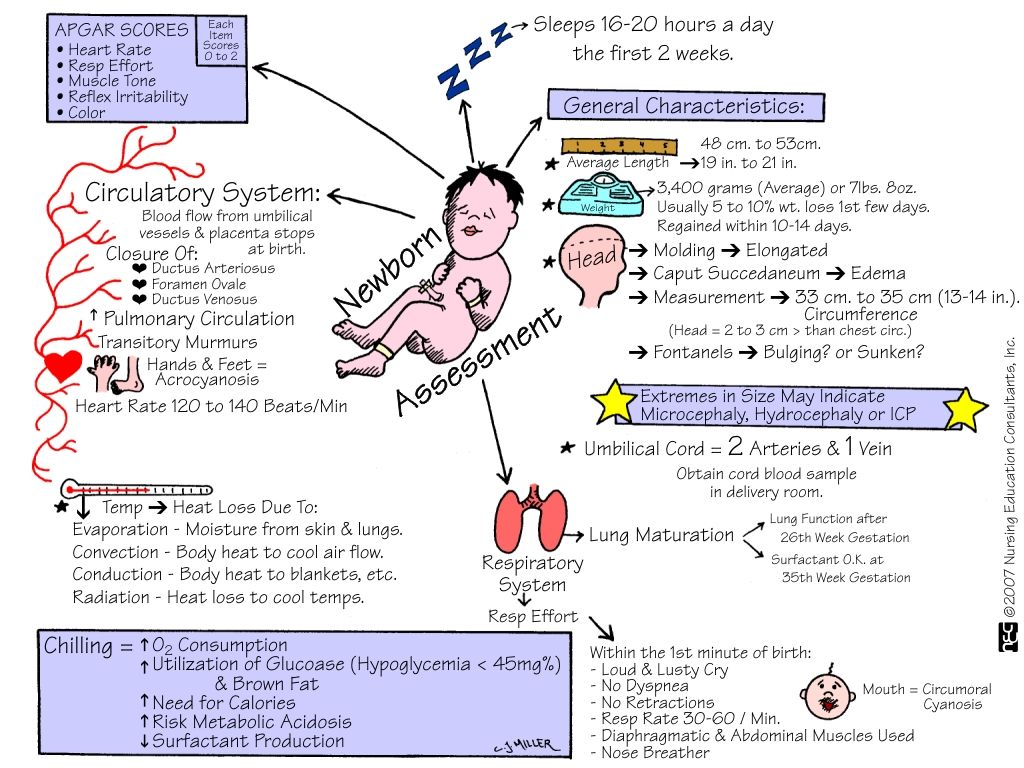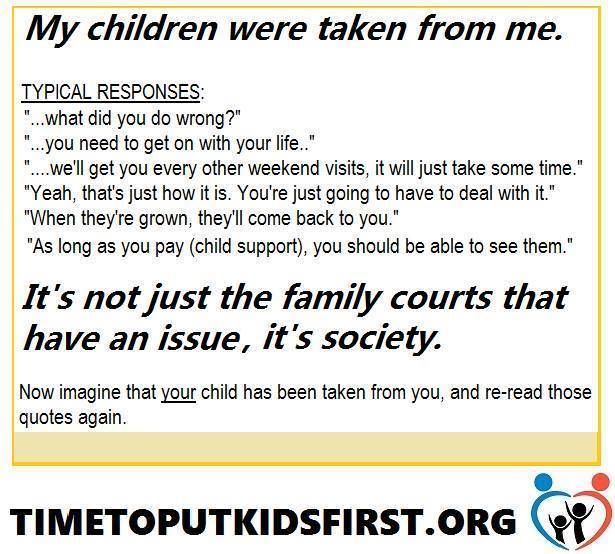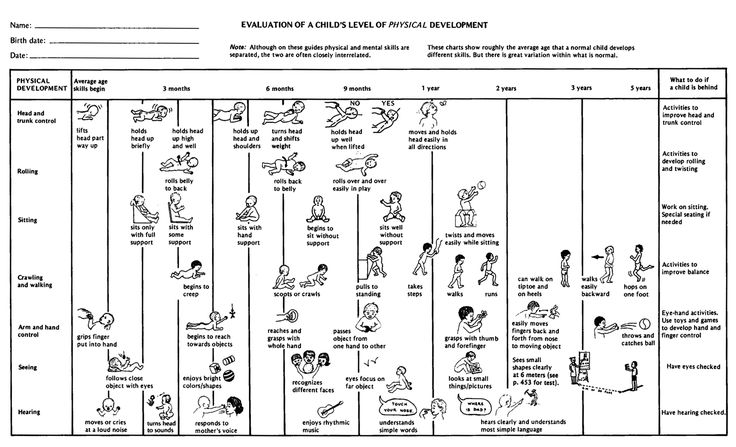How to deal with a wild child
10 positive parenting tips for your wild child!
By Melissa Corkhill
15th July 2016
HAVE A STRONG-WILLED CHILD? You're lucky! Strong willed children can be a challenge to parent when they’re young, but if sensitively parented, they become terrific teens and young adults. Self-motivated and inner-directed, they go after what they want and are almost impervious to peer pressure. As long as parents resist the impulse to "break their will," strongwilled kids often become leaders. ?What exactly is a strong-willed, or spirited, child? Some parents call them "difficult" or “stubborn,” but we could also see strong-willed kids as people of integrity who aren’t easily swayed from their own viewpoints. Laura Markham on why you are lucky to have a strong-willed child who can sometimes be a bit wild.
By Melissa Corkhill
15th July 2016
By Melissa Corkhill
15th July 2016
Strong-willed kids want to learn things for themselves rather than accepting what others accept, so they test the limits over and over. They want desperately to be “in charge” of themselves, and will sometimes put their desire to “be right” above everything else. When their heart is set on something, their brains seem to have a hard time switching gears. Strong-willed kids?have big, passionate feelings and live at full throttle. Often, strong-willed kids are prone to power-struggles with their parents. However, it takes two to have a power struggle. You don’t have to attend every argument to which you’re invited! If you can take a deep breath when your buttons get pushed, and remind yourself that you can let your child save face and still get what you want, you can learn to sidestep those power struggles. Research shows that parents who pay attention can avoid power struggles, even with strong-willed kids, by empathizing as they set limits, giving choices, and clearly offering respect. Looking for win/win solutions rather than just laying down the law keeps strong-willed children from becoming explosive and teaches them essential skills of negotiation and compromise.
 Strong-willed kids aren’t just being difficult. They feel their integrity is compromised if they’re forced to submit to another person’s will. If they’re allowed to choose, they love to cooperate. If this bothers you because you think obedience is an important quality, I’d ask you to reconsider. Of course you want to raise a responsible, considerate, cooperative child who does the right thing, even when it’s hard. But that doesn’t imply obedience. Morality is doing what’s right, no matter what you’re told. Obedience is doing what you’re told, no matter what’s right. So of course you want your child to do what you say. But not because he’s obedient, meaning that he always does what someone bigger tells him to do. No, you want him to do what you say because he trusts YOU, because you are the parent and have his best interests at heart. You want to raise a child who has self-discipline, takes responsibility, and is considerate – and most important, has the discernment to figure out when to trust and be influenced by someone else.
Strong-willed kids aren’t just being difficult. They feel their integrity is compromised if they’re forced to submit to another person’s will. If they’re allowed to choose, they love to cooperate. If this bothers you because you think obedience is an important quality, I’d ask you to reconsider. Of course you want to raise a responsible, considerate, cooperative child who does the right thing, even when it’s hard. But that doesn’t imply obedience. Morality is doing what’s right, no matter what you’re told. Obedience is doing what you’re told, no matter what’s right. So of course you want your child to do what you say. But not because he’s obedient, meaning that he always does what someone bigger tells him to do. No, you want him to do what you say because he trusts YOU, because you are the parent and have his best interests at heart. You want to raise a child who has self-discipline, takes responsibility, and is considerate – and most important, has the discernment to figure out when to trust and be influenced by someone else. Breaking a child’s will leaves him open to the influence of others who often will not serve him. What’s more, it’s a betrayal of the spiritual contract we make as parents to nurture our child’s unique gifts. That said, strong-willed kids can be a handful – high energy, challenging, persistent. How do we protect those fabulous qualities and encourage their cooperation?
Breaking a child’s will leaves him open to the influence of others who often will not serve him. What’s more, it’s a betrayal of the spiritual contract we make as parents to nurture our child’s unique gifts. That said, strong-willed kids can be a handful – high energy, challenging, persistent. How do we protect those fabulous qualities and encourage their cooperation?
‘When their heart is set on something, their brains seem to have a hard time switching gears. Strong-willed kids?have big, passionate feelings and live at full throttle’
TEN TIPS FOR POSITIVE PARENTING YOUR STRONG WILLED, SPIRITED CHILD:
1 Avoid power struggles by using routines and rules. That way, you aren’t bossing them around, it’s just that “The rule is we use the potty after every meal and snack,” or “The schedule is that lightsout is at 8pm. If you hurry, we’ll have time for two books,” or “In our house, we finish homework before screen time.” The parent stops being the bad guy.
2 Your strong-willed child wants mastery more than anything.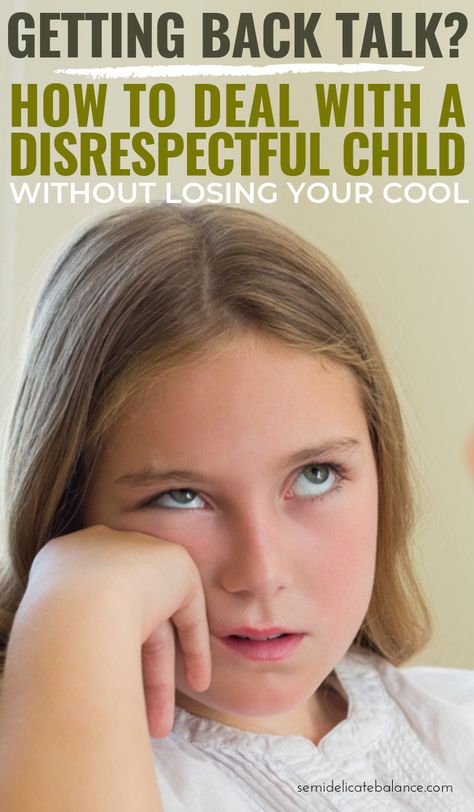 Let her take charge of as many of her own activities as possible. Don’t nag at her to brush her teeth; ask “What else do you need to do before we leave?” If she looks blank, tick off the short list: “Every morning we eat, brush teeth, use the toilet, and pack the backpack. I saw you pack your backpack, that’s great. Now, what do you still need to do before we leave?” Kids who feel more independent and in charge of themselves will have less need to be oppositional. Not to mention, they take responsibility early.
Let her take charge of as many of her own activities as possible. Don’t nag at her to brush her teeth; ask “What else do you need to do before we leave?” If she looks blank, tick off the short list: “Every morning we eat, brush teeth, use the toilet, and pack the backpack. I saw you pack your backpack, that’s great. Now, what do you still need to do before we leave?” Kids who feel more independent and in charge of themselves will have less need to be oppositional. Not to mention, they take responsibility early.
3 Give your strong-willed child choices. If you give orders, he will almost certainly bristle. If you offer a choice, he feels like the master of his own destiny. Of course, only offer choices you can live with and don’t let yourself get resentful by handing away your power. If going to the store is nonnegotiable and he wants to keep playing, an appropriate choice is: “Do you want to leave now or in ten minutes? Okay, ten minutes with no fuss? Let’s shake on it…. And since it could be hard to stop playing in ten minutes, how can I help you then?”
And since it could be hard to stop playing in ten minutes, how can I help you then?”
4 Give her authority over her own body. “I hear that you don’t want to wear your jacket today. I think it’s cold and I am definitely wearing a jacket. Of course, you are in charge of your own body, as long as you stay safe and healthy, so you get to decide whether to wear a jacket. But I’m afraid that you will be cold once we are outside, and I won’t want to come back to the house. How about I put your jacket in the backpack, and then we’ll have it if you change your mind?” She’s not going to get pneumonia, unless you push her into it by acting like you’ve won if she asks for the jacket. And once she won’t lose face by wearing her jacket, she’ll ask for it once she gets cold. It’s just hard for her to imagine feeling cold when she’s so warm right now in the house, and a jacket seems like such a hassle. She’s sure she’s right – her own body is telling her so – so naturally she resists you. You don’t want to undermine that self-confidence, just teach her that there’s no shame in letting new information change her mind.
You don’t want to undermine that self-confidence, just teach her that there’s no shame in letting new information change her mind.
5 Don’t push him into opposing you. Force always creates “push-back” – with humans of all ages. If you take a hard and fast position, you can easily push your child into defying you, just to prove a point. You’ll know when it’s a power struggle and you’re invested in winning. Just stop, take a breath, and remind yourself that winning a battle with your child always sets you up to lose what’s most important: the relationship. When in doubt say “Ok, you can decide this for yourself.” If he can’t, then say what part of it he can decide, or find another way for him to meet his need for autonomy without compromising his health or safety.
6 Side-step power struggles by letting your child save face. You don’t have to prove you’re right. You can, and should, set reasonable expectations and enforce them. But under no circumstances should you try to break your child’s will or force him to acquiesce to your views.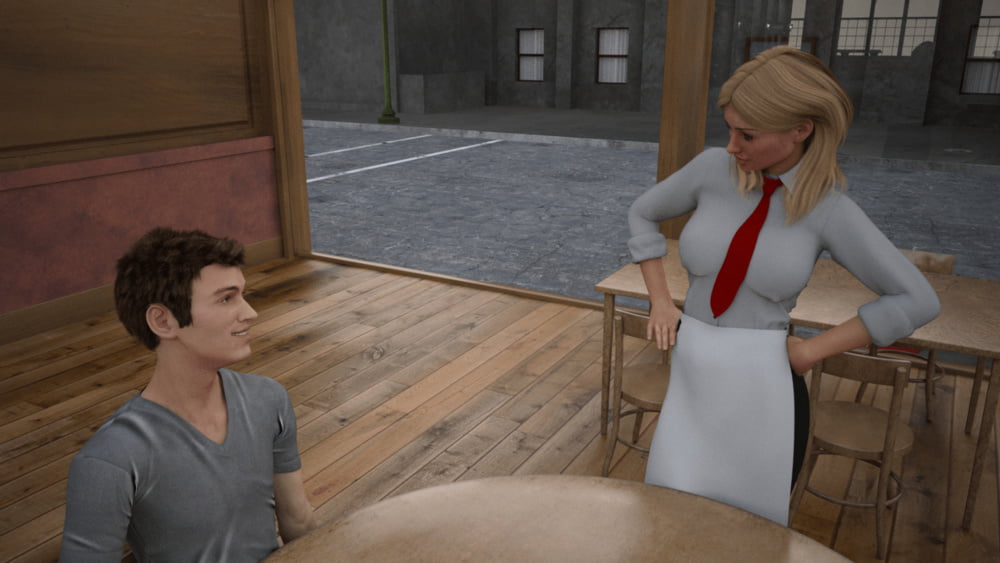 He has to do what you want, but he’s allowed to have his own opinions and feelings about it.
He has to do what you want, but he’s allowed to have his own opinions and feelings about it.
7 Listen to her. You, as the adult, might reasonably presume you know best. But your strong-willed child has a strong will partly as a result of her integrity. She has a viewpoint that is making her hold fast to her position, and she is trying to protect something that seems important to her. Only by listening calmly to her and reflecting her words will you come to understand what’s making her oppose you. A non-judgmental “I hear that you don’t want to take a bath. Can you tell me more about why?” might just elicit the information that she’s afraid she’ll go down the drain, like Alice in the song. It may not seem like a good reason to you, but she has a reason. And you won’t find it out if you get into a clash and order her into the tub.
8 See it from his point of view. For instance, he may be angry because you promised to wash his superman cape and then forgot.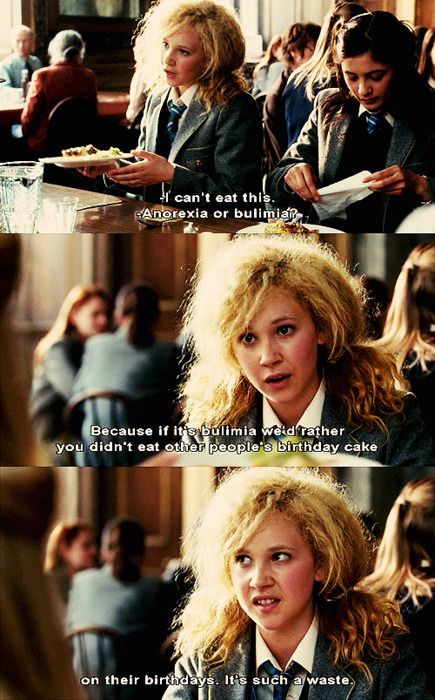 To you, he is being stubborn. To him, he is justifiably upset, and you are being hypocritical, because he is not allowed to break his promises to you, but you broke yours to him. How do you clear this up and move on? You apologize for breaking your promise, you reassure him that you try very hard to keep your promises, and you go, together, to wash the cape. You might even teach him how to wash his own clothes! Just consider how would you want to be treated, and treat him accordingly.
To you, he is being stubborn. To him, he is justifiably upset, and you are being hypocritical, because he is not allowed to break his promises to you, but you broke yours to him. How do you clear this up and move on? You apologize for breaking your promise, you reassure him that you try very hard to keep your promises, and you go, together, to wash the cape. You might even teach him how to wash his own clothes! Just consider how would you want to be treated, and treat him accordingly.
9 Discipline through the relationship, never through punishment. Kids don’t learn when they’re in the middle of a fight. Like all of us, that’s when adrenaline is pumping and learning shuts off. Kids behave because they want to please us. The more you fight with and punish your child, the more you undermine her desire to please you. If she’s upset, help her express her hurt, fear or disappointment, so they evaporate. Then she’ll be ready to listen to you when you remind her that in your house, everyone speaks kindly to each other.
10 Offer him respect and empathy. Most strongwilled children are fighting for respect. If you offer it to them, they don’t need to fight to protect their position. And, like the rest of us, it helps a lot if they feel understood. If you see his point of view and think he’s wrong – for instance, he wants to wear the superman cape to synagogue and you think that’s inappropriate – you can still offer him empathy and meet him part way while you set the limit. “You love this cape and wish you could wear it, don’t you? But when we go to Temple we dress up, and we can’t wear the cape. I know you’ll miss wearing it. How about we take it with us so you can wear it on our way home?”
MORE INSPIRATION VISIT Laura’s site ahaparenting.com if you are keen to learn how to build a close relationship with your children rather than struggling with control issues
READ Peaceful Parent, Happy Kids: How to Stop Yelling and Start Connecting by Dr. Laura Markham
Laura Markham
LISTEN As support for parents, Laura recommends the podcasts by Patty Wipfler at Hand in Hand Parenting shop. handinhand parenting.org.
Get our weekly inspiration email
The Secret Sauce to Tame Your Wild Child
Having a wild child can bring the eyes of judgment in every aisle of the grocery store. More discipline is not always the best answer. Explore how love, respect, grace, and forgiveness can equip you as you respond to your wild child.
It never ceases to amaze me how fast we go from helpless newborn to a turn-me-loose wild child of a toddler. Although, these seem like two extremes, and they are, there is one underlying need that soothes both ends of the behavioral spectrum. Learning to love and tame your wild child begins with their need of you.
Chelsea was my wild child.
It didn’t help that she was deaf. Communication was a barrier. It felt like I had given birth to a child that didn’t speak English. Instead of me teaching her how to talk, I had to learn her language. Nonetheless, God had given her an extra measure of tenacity. A trait that would carry her far in her adult life, and exhaust me raising her.
Nonetheless, God had given her an extra measure of tenacity. A trait that would carry her far in her adult life, and exhaust me raising her.
As a toddler, she reminded me of a wild kitten. Adorable. Untamed. Without the influence of the sound of my voice, she heard only the ideas in her little head, unaltered, life was an adventure.
While discipline is an important factor, not to be discounted, there are times when simply more punishment is not the answer to a young child’s behavior. It’s always important to look at the context of why a child is being wild. I’m not saying that you must excuse bad behavior, it is however, important to understand what triggers their behavior.
Why is My Toddler So Angry and Aggressive?
When I learned that deaf children are often aggressive, due to their frustration in communicating, it was a game changer. I noticed her older sister, by just two years, would often ignore her attempts at communicating. This explained an increasingly common scene.
I noticed her older sister, by just two years, would often ignore her attempts at communicating. This explained an increasingly common scene.
Following the sounds of screams, “Get the baby off me!” coming from another room, I would find my two-year-old on top of the four-year-old trying to hit her.
Understanding that frustration fueled her aggression, helped me to attack the behavior issue on more than one front. Although, the child on the floor screaming for help was clearly the victim, she needed to understand her part in the conflict.
It was an opportunity to talk to her about patience, listening, and caring for someone younger than you. And, frankly, how to avoid being spontaneously attacked.
For the offender, there is no excuse for violent behavior. One of our primary responsibilities as parents is to help our children learn to regulate strong emotions. Deafness, is not an excuse for hitting anyone. Pitying a child, or dismissing bad behavior because we feel guilty for missing nap time, or allowing too much sugar, isn’t kindness or good parenting.
Loving parental kindness, is understanding what is fueling the behavior and doing our best to remove it from our child’s environment and correcting the behavior. Does she have tantrums at four o’clock without a nap? Make nap time a priority.
For some children out of control behavior can be linked to food allergies, or ingredients.
7 Traits of Effective Parenting Assessment
Good parents aren’t perfect. There’s no formula to follow, but there are ways you can grow every day. Focus on the Family’s 7 Traits of Effective Parenting Assessment gives parents an honest look at their unique strengths, plus some areas that could use a little help.
Take the free Parenting Assessment
The Red Hulk Wild Child
Food allergies are a major cause of children behavior issues. I’ve witnessed it, many times, in scores of children. The key to taming your wild child is helping your child recognize it in themselves.
When they become aware of what happens when they eat certain foods, they are more likely to avoid them. Children do not want to feel out of control. When we help them to understand that their diet, and rest, helps them be happy, they can begin to have the tools to help themselves.
Children do not want to feel out of control. When we help them to understand that their diet, and rest, helps them be happy, they can begin to have the tools to help themselves.
You might be surprised to find out how many processed foods, designed for children, are laced with red dye number 7. I have found it in chocolate pudding mixes. Don’t go by color. If you suspect it could be an issue for your child, read the ingredients. Read. Eliminate. Repeat.
How Do I Control My Wild Toddler?
I promised you my secret sauce. It’s really a simple recipe. Once you understand the environmental factors that contribute to unwanted behavior, you have the opportunity to be pro-active.
The very best way I found to control my wild kitten, was to simply make her my buddy. I say simply, because it was a simple solution. Nonetheless, it does take time, and intention.
Who Doesn’t Need a Good Sidekick?
With five children, I had a mountain of laundry and a deaf toddler that needed constant surveillance. So, she became my sidekick.
So, she became my sidekick.
I found that keeping her beside me, literally, not only tamed her behavior, but built a foundation in many areas for her.
While sorting laundry we would sit on the floor together. I would start making piles. Dark clothes. Light clothes. Red clothes. Doll Clothes. Clean clothes– did mention we had four girls in a row at one point?
This led to great conversations. I would sign, “what color?” She had to figure it out, her reward was throwing it across the room in the correct pile. If she was wrong, she would run and get it and throw it into the next pile she thought was correct.
Yes. This made the process take much longer. There’s a lot of work to do with a house full of young children. I get it. But the real secret was my mental shift. The value of my time was not the chore at hand. It was the window of opportunity to pour into my little girl. It became a game we both loved to play.
There are a lots you and your sidekick can do and talk about together. Most household chores, you perform daily can provide for quality time with your wild child. I’ll bet you could come up with some of your own. Here are a few examples.
Most household chores, you perform daily can provide for quality time with your wild child. I’ll bet you could come up with some of your own. Here are a few examples.
- Talk about the colors.
- Is it a shirt or pants?
- Do you wear this in the summer or winter?
- How many red clothes do we have? Can you count them?
- What do we do next? Then what? (Sequencing)
- Sorting and putting away silverware.
Final Thoughts on Loving Your Wild Child
There are few things our children need more from us than our time and attention. In this busy, distraction filled world we are raising our children in, often times the secret to taming their bad behavior, is giving them ample opportunity for good behavior. Finally, remember that taming your wild child requires your consistent love and compassion above all else.
What to do with unruly children - illuminating blog
Author: Marina Komissarova, psychologist
Very often in parent-child communities there are questions about what to do with unruly and completely naughty children. Nothing affects them at all. Many parents are faced with teenage uncontrollability, with the inability to influence a child of 13-17 years old. He doesn't listen to anything. And finally, there are adults who are completely uncontrollable (from the side of society). They are most often referred to as criminals, but this is also an interesting problem.
Nothing affects them at all. Many parents are faced with teenage uncontrollability, with the inability to influence a child of 13-17 years old. He doesn't listen to anything. And finally, there are adults who are completely uncontrollable (from the side of society). They are most often referred to as criminals, but this is also an interesting problem.
All three problems are connected from the point of view of psychophysiology. All these are different degrees of the same thing. It's just that difficult children do not always become difficult teenagers, and even less often turn into delinquents. Most safely pass such a period in childhood or puberty, and in adulthood become reasonable and prosperous citizens. However, not all. Sometimes there are people who were quite obedient in childhood or even in adolescence, and then turned into uncontrollable. It rarely happens, but it does happen.
What is it?
First of all, it is too high a threshold of frustration. It is best for parents of difficult children to understand this topic so as not to fight disobedience in various wild and harmful (that is, aggravating the problem) ways, like a belt. It is all the more stupid to punish teenagers (depriving them of walks and taking away gadgets).
It is all the more stupid to punish teenagers (depriving them of walks and taking away gadgets).
For an ordinary child in a difficult period, this is just insulting and creates discord with the parent (and the desire to hide more from him and run away from home early).
And for a really difficult one, it raises the frustration threshold even more, hardens, turns on and makes the parent a target for struggle.
Frustration threshold is a difficult topic for non-specialists. I'll try to explain as simply as possible. Children are born different, each with its own peculiar nervous organization. Children become even more different when a unique developmental experience is added to the nervous organization.
Once an excellent scientist Lev Gumilyov investigated the problem of passionarity (and passionarity in many cases is just such a complete uncontrollability and insubordination) and came to the conclusion that passionarity probably depends on special solar flares. Among social factors, Gumilyov singled out such a factor as the intersection of ethnic groups, not so much different genes, but radically different cultures.
Among social factors, Gumilyov singled out such a factor as the intersection of ethnic groups, not so much different genes, but radically different cultures.
Modern research tends to the same point of view. Mutations, genetic features, and a special social environment, in which there is a gap between moral meanings, are involved in the appearance of such a nervous organization.
In itself, Gumilyov considered passionarity to be a very important and necessary phenomenon for mankind, but he noted that if it was misdirected and used, it could turn into disaster. A pronounced passionary does not stop at any obstacles, any obstacle only stimulates him more to be active and to strive for a goal. Even if the goal is good, such a person can be dangerous (especially since the good is relative). What if the goal is not the common good? It is terrible to imagine what such a monster is capable of, obsessed with the idea of remaking the world according to his plan. And why pretend? You can read history.
Gumilev also singled out as a separate type - subpassionaries (people whose energy is directed to self-destruction, self-destruction) and harmonious (people who live normally, calmly and fit well into the social framework). All this is rather conditional. There may be a harmonious person with the features of a passionary or, conversely, a subpassionary, and sometimes at different periods of life.
From the point of view of psychophysiology, subpassionaries can be attributed to people with a very low frustration threshold, harmonious people - to those whose frustration threshold is normal, but passionaries are people with a very high, sometimes abnormally high frustration threshold.
The concept of frustration is misunderstood by many, even by some psychologists.
Frustration is not aggression that occurs when a person's needs collide with an obstacle. No. Aggression is just one of the forms of reaction to frustration, moreover, Kurt Lewin considered frustration accompanied by aggression to be incomplete. Because aggression is an additional energy that is released in an attempt to overcome an obstacle. You ran into a barrier and in a rage tried to break it. You are not completely frustrated because you are still trying to keep moving towards the goal, albeit in such a destructive way.
Because aggression is an additional energy that is released in an attempt to overcome an obstacle. You ran into a barrier and in a rage tried to break it. You are not completely frustrated because you are still trying to keep moving towards the goal, albeit in such a destructive way.
Real frustration is when a person stops moving when faced with an obstacle, gives up, cannot direct the same energy to anything constructive. He simply suppresses it, extinguishes or directs aggression inward.
An ordinary person, whose strong need is faced with an obstacle, first tries to overcome this obstacle, then looks for workarounds, and realizing that the obstacle is insurmountable, part of the need frustrates (extinguishes), and part tries to redirect somewhere (does not frustrate). This is a socially adequate being. Ideally, a small part should be extinguished, and a large part should be redirected. This is a well-adapted and stress-resistant personality.
A pronounced passionary is a person whose need knows no barriers at all. He will never give up on his goal. He will either die or head-butt the barrier (and yes, most do die, of course). In extreme cases, he will come up with a way to get around this wall, but not in a roundabout way and will not wait long, because he is seething with passion. Passionarity is a strong passion (passion = passion).
He will never give up on his goal. He will either die or head-butt the barrier (and yes, most do die, of course). In extreme cases, he will come up with a way to get around this wall, but not in a roundabout way and will not wait long, because he is seething with passion. Passionarity is a strong passion (passion = passion).
Do you understand what the frustration threshold is? This is such a conditional threshold, which depends on the qualities of the psyche and personality, having reached which a person believes that the barrier is too great and it is pointless to spend his energy further.
A normal person sees objective “no”, “impossible”, “it will cost too much” and retreats. Passionary begins to rush forward with a vengeance. Yes, barriers only turn on a real passionary. If a person's frustration threshold is very, very high, there is no such barrier that he would consider impassable for himself.
From the point of view of psychophysiology, this is a pathology, since such people are rather poorly adapted to life in the environment, and even more so in society, they often die. However, if we do not take extremes, that is, we do not consider the prohibitively high threshold of frustration, but simply consider it elevated, then we see a very purposeful person, perhaps a hero, and possibly a criminal, but the personality is quite strong (until she was physically broken or killed) .
However, if we do not take extremes, that is, we do not consider the prohibitively high threshold of frustration, but simply consider it elevated, then we see a very purposeful person, perhaps a hero, and possibly a criminal, but the personality is quite strong (until she was physically broken or killed) .
Frustration threshold too low - same pathology. Such a person gives in from any difficulty, he is ready to accept any external rule as a law and will not try to circumvent it, and, having met any resistance on the way, will immediately give in. The norm is always in the middle, but the peculiarity of people lies in the fact that some normal people have a lower frustration threshold, some have an increased one, and all of them need (and can) learn to live happily.
Now imagine a small child. Your difficult and completely unmanageable.
He is physiologically made differently than his peers with whom you compare him. What's the point of beating him up? If it is from helplessness and anger, okay (better drink a sedative), but if this is a conscious method of education, then you are fools, not parents.
The majority of uncontrollable children, bypassing the crisis of 3 years of age (after approximately 4 years), become completely controllable. But (!) If the parents had not already ruined their relationship with them, while they were beating and tormenting them during the three-year crisis. During this time, you can become the enemy of the child, especially if you have a real passionary.
What is the difference between an unruly child and an obedient and quiet one?
Obedient is more sensitive, emotionally responsive, impressionable, anxious, so his frustration threshold is much lower. Mom just looked sadly, shook her head, and his desire to climb over there on that high shelf disappeared.
The external “no” became a sufficient barrier, because his frustration threshold is very low, almost any barrier is enough for him to retreat.
You see that a child who is too obedient is also not very good, right? Any external “no” immediately becomes his internal law, he is suggestible, he is completely controllable. Everything is good in moderation.
Everything is good in moderation.
What is a very naughty child? Oh, he can't hear you at all. To him, your op is just noise, like the sound of the sea. His excitement from desire (nervous, physiological, his psyche is so arranged) is so strong that you can even kill yourself, but he will climb where he has planned. If the frustration threshold is very high, you can beat him with mortal combat, he will cry, but still climb. No suffering will stop him, because fear is nothing compared to his need. I repeat again, most likely (9out of 10) he will outgrow this period, become adequate, but so far he is. Just accept this fact, for starters.
You think in vain that an obedient child is more reasonable and good, his need simply does not have such an energy force. He's not that passionate.
His need is weaker, it is easily removed by prohibition. And your terrible child has strong and powerful desires. He is a typhoon. Here's the one you got.
What do parents do when they beat and punish such children? They can turn them from possible heroes into possible criminals. Yes, let's not be afraid of big words, it's something like this happens. Not always, fortunately, but often.
Yes, let's not be afraid of big words, it's something like this happens. Not always, fortunately, but often.
What is the difference between a hero and a criminal? The first wants to do something for the benefit of society, the second is anti-social and wants to rob others. The second can be considered a psychopath, and passionaries who were beaten in childhood often turn into psychopaths. Imagine for yourself, their need has incredible energy power, they cannot cope with it, there are no mental reserves. And on the part of society (which is personified by parents and teachers), beatings and punishments come all the time. What is left for the children? Firstly, learn to lie and pretend (for self-defense), and secondly, to hate society as the main enemy, looking for means of struggle and revenge. (This must be understood not for the sake of justifying criminals, but for the sake of reducing their number).
The percentage of true passionaries is very small. Great heroes and true villains are rare.
Most unruly children will later normalize their frustration threshold and become perfectly normal and law-abiding citizens.
But during the periods of their riots, it is not necessary to spoil relations with them and turn them against yourself and society, making life difficult for yourself and social adaptation for them.
And what can be done, I'll tell you now.
Now I can’t say what to do with children with a real conduct disorder (who even at 8-10 years old destroy everything, behave aggressively and do not respect the minimum rules) and how to correct adolescent psychopaths, this is too difficult a problem (although interesting and a lot of research and experimentation is underway). But I can tell you what to do with young children with a high threshold of frustration, those who do not want to obey, are very stubborn, insist on their own, lie (because they are punished) and violate all prohibitions.
It is very difficult or impossible to frustrate their energy, sometimes it is easier for them to break all the bones than to prohibit them from wanting something and climbing somewhere.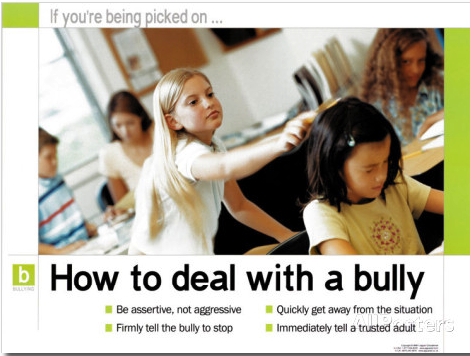 But their energy can be redirected by suggesting another goal or several goals. And this is the ONLY way. Do you understand? It is almost impossible to ban, stop, intimidate, prove.
But their energy can be redirected by suggesting another goal or several goals. And this is the ONLY way. Do you understand? It is almost impossible to ban, stop, intimidate, prove.
You can redirect your attention. This is the only option. And it is better to occupy their attention BEFORE they choose a destructive goal for themselves, otherwise it will be difficult to distract.
Get their attention in advance. There will be a wasteland, they will fill it themselves and in a way that you will not like it.
Parents should understand very well that the main enemy of such children is BOREDOM.
Out of boredom, such children are ready not only to violate parental prohibitions, but to jump out the window and this is not a joke. Understand that people's minds are different. And the unformed children's psyche is especially bizarre. Anxious children tolerate boredom much better, but such children cannot at all, boredom kills them and blows their minds. They experience a real torment, the strongest torment of hell, when you make them just sit or do something boring, useful, but uninteresting. They need emotions, they are emotional gluttons from birth. They will grow up and learn self-regulation, but for now it is very difficult for them to live in your boring adult world.
They experience a real torment, the strongest torment of hell, when you make them just sit or do something boring, useful, but uninteresting. They need emotions, they are emotional gluttons from birth. They will grow up and learn self-regulation, but for now it is very difficult for them to live in your boring adult world.
Here is the experience of a father who turned out to be so attentive and smart that he immediately realized that the scourge of his difficult child (which all nannies, kindergartens, and even the mother agreed to refuse) was boredom. He becomes very aggressive out of boredom (and there is most likely a genetic feature, because his father is the same), and in an interesting game - he is very adequate, quick-witted, responsive, a normal child.
Never put such children in a corner, do not punish them with boredom and sitting on a chair, do not act like stupid monsters, they can't stand boredom anyway, and you torture them even more.
If you beat such children, you not only create the image of adult enemies in them, but also raise, harden their pain threshold, and soon they begin to love to fight, love even physical punishment, love blood and beatings (inflict and receive , Yes).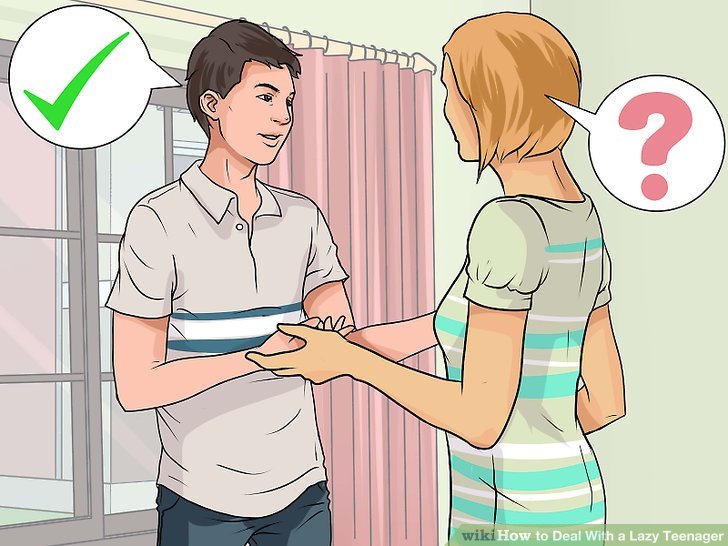 It's hard to imagine, but it's true. This is very typical for passionaries: in emotional heat they do not feel and are not afraid of pain. And if the pain threshold has been trained since childhood, then even more so they love to fight.
It's hard to imagine, but it's true. This is very typical for passionaries: in emotional heat they do not feel and are not afraid of pain. And if the pain threshold has been trained since childhood, then even more so they love to fight.
Boredom is so unbearable for such children that any pain and danger becomes a boon for them. And you additionally accustom them to pain, make pain habitual or even pleasant for them. For what?
It is better to let their pain threshold remain lower, then reverence, a barrier will remain before pain, and they will risk their health less in their lives. Pain has a protective function, it is not necessary to abolish it, it is very dangerous.
The only way to deal with such children is to keep them constantly in a state of some kind of enthusiasm, some interesting tasks. Oh yes, it's hard, but it's the only way. As soon as they get bored, they begin to violate your prohibitions, do everything that is impossible, rush to dangers and adventures.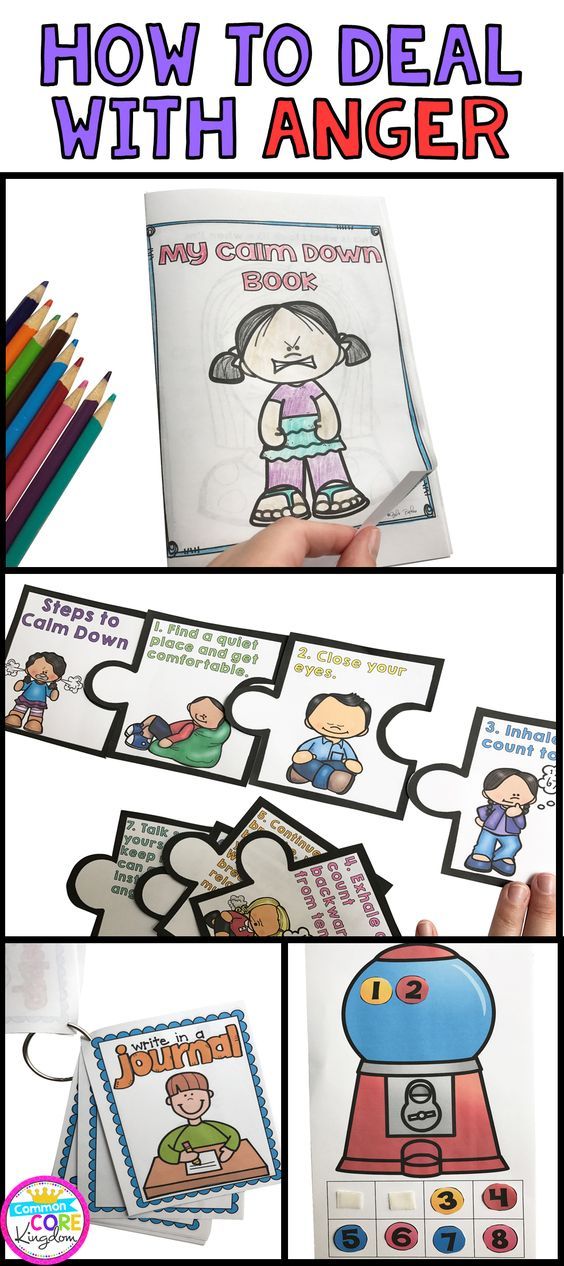 Do not think that their goal is to drive you crazy, but for them it is better than just sitting in unbearable four walls in an endless stretch of time. Time for such a child is stretched so that every five minutes turn into five weeks. Imagine that you have to sit and stare at a wall for five weeks. You want to smash your head against that wall, don't you? This is exactly what your child wants.
Do not think that their goal is to drive you crazy, but for them it is better than just sitting in unbearable four walls in an endless stretch of time. Time for such a child is stretched so that every five minutes turn into five weeks. Imagine that you have to sit and stare at a wall for five weeks. You want to smash your head against that wall, don't you? This is exactly what your child wants.
Don't compare your child to others. The other one has a different mentality, he endures boredom better, he can focus on a book or a toy for an hour (too low a threshold of frustration is also bad, I repeat, up to a certain age, healthy children should be restless), but yours is like this, he is unbearable in ordinary conditions, he needs constant action, a constant game, a constant change of events, a constant load, mental and physical.
Your task is not only to feed him and put him to bed, but also to provide him with an adequate level of workload, impressions and incentives. If there are too few of them, he will languish and rage, howl and climb the walls.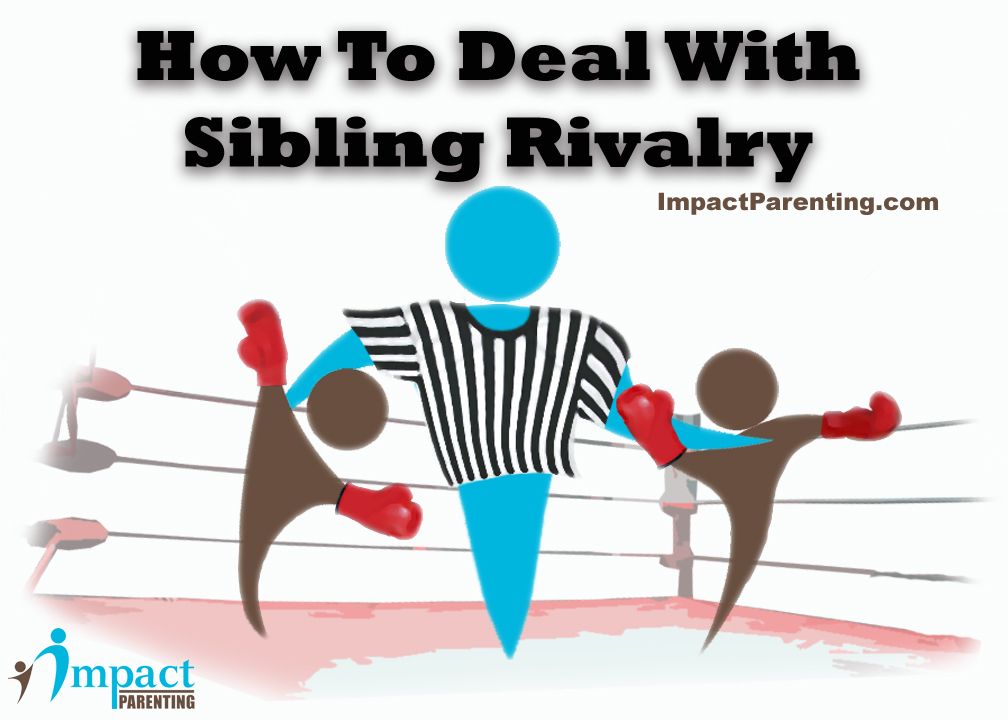 He will blow your mind. Or destroy everything around.
He will blow your mind. Or destroy everything around.
Hold on. If you survive this crisis period with honor (usually a crisis lasts a year or two), you will get an adequate, but energetic son or daughter, and you will also thank him or her that they are just like that. Almost all features of the psyche (healthy) have their drawbacks and their advantages.
Reprinted with the permission of the author. The original is here.
8 easy steps to teach children to respect and listen to their parents?
Naughty children: why did they not please their parents?
In order for such children to behave "normally", adults have to make efforts: to restrain, control, repeat, refuse, punish and warn. And that's the point: we don't want to strain ourselves by raising children. It would be more convenient for the child to be controlled like a toy with a remote control.
You tell your child: “You need to wash your face” or “Wash your hands!”, but he does not listen to you. You remind that it's time to break away from the computer and sit down for lessons, he frowns with displeasure: "Leave me alone!" - Of course, it's a mess.
You remind that it's time to break away from the computer and sit down for lessons, he frowns with displeasure: "Leave me alone!" - Of course, it's a mess.
Smart parents have funny, smart and obedient children. Moreover, smart and loving parents take care of this: they make sure that their children are not only smart, but also obedient. This seems obvious: if you want to teach a child to do good things, you first need to teach him to obey you elementarily.
Unfortunately, ordinary children have long been accustomed to not listening to their parents: you never know what they say! And the point here is not in the children, but in us, in the parents, when we say things that are important for us to the children somehow not seriously, not paying attention to whether the children are listening to us or not, when we put forward our demands unconvincingly.
Your requests should be calm, but clear instructions, sound weighty and be accompanied by control. The child must know that your words are not empty words, and if you warn that toys that are not removed are thrown away, they really disappear. If a parent approaches a child with a confident request, knowing that he has leverage, the child will respond to such a request.
If a parent approaches a child with a confident request, knowing that he has leverage, the child will respond to such a request.
But it's not just about the right wording and levers of influence, there is another important trick in building relationships with a child, namely, whether your child has a HABIT to obey you. "To obey or not to obey parents" is determined not only by what and how the parents say, it is also determined simply by the child's habits.
There are children who have the habit of mindlessly obeying everyone, and there are children who have the same habit of mindlessly disobeying anyone. Obeying "everyone" or "no one" are equally bad habits, but the habit of obeying selectively, namely, OBEYING YOUR PARENTS, is a great habit! Your children should have the habit of paying attention to what you say, the habit of doing what you ask them to. Teach your child to listen and obey you, and you will have your parental authority, you will have the opportunity to raise a developed and thinking person from your child.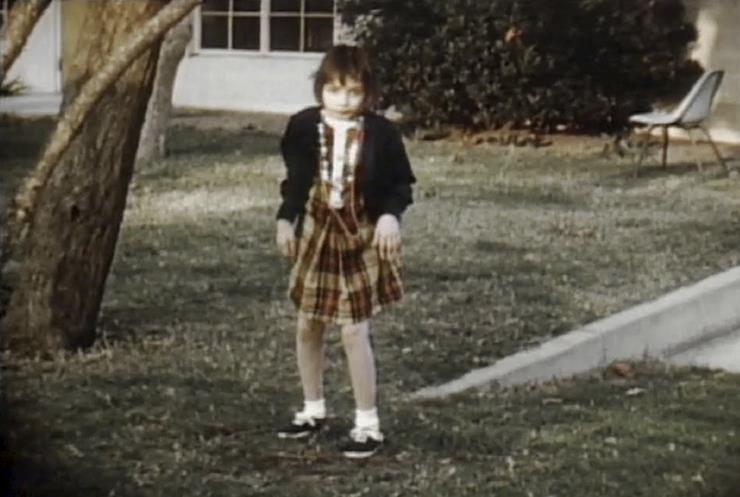
Is it difficult to get your children into this habit? Much depends on age: it is difficult to teach a teenager to obey his parents, it is almost impossible for many mothers, and developing such a habit in a small child is a solvable task. In principle, the sooner you begin to develop in your child the habit of listening and obeying you, the easier it will be for you.
The easiest method to help you with this is the "Eight Steps" method. Its idea is to teach your child to obey you, starting with the simplest, most elementary things, and very gradually, methodically move step by step to more difficult things. From simple to complex.
First, we do what any parent can do with any child, then we add a little, then a little more - and so we go a long way from a natural child to a well-bred child who already understands that people who are loving and more experienced than him should obey Right.
The age at which the Eight Steps algorithm works best is from 2 to 12 years. After 12 years, a well-bred child should already become your friend and helper, you are no longer so much raising him, but helping him in his self-education, helping him to solve life's tasks in the best way.
After 12 years, a well-bred child should already become your friend and helper, you are no longer so much raising him, but helping him in his self-education, helping him to solve life's tasks in the best way.
And now to business. What are these steps?
Step 1: Addition.
As the King from Antoine Saint-Exupéry's fairy tale "The Little Prince" said, controlling the sunrise is easy, you just need to know when the sunrise occurs. Say at the right moment: "Sun, rise!", and you will become the lord of the rising sun... So is the child: if the child does not obey you yet, he still does something. Go from what is, adapt to what he does, and direct his activity in the direction you need.
The child runs, you shout to him: "Well done, faster, faster!" - he happily adds speed.
Sit down at the table, you know what the child loves, what he will still reach for. Get ahead of him: "Take your favorite bread!" You said he took it.
Little Nikita likes to clap his hands. "How does Nikita clap her hands? - Clever girl, Nikita! And now, Nikita, show me how the car hums! ... Wonderful!" - you teach him to do what you tell him. He is one and a half years old, and he is already learning to listen to you and obey.
"How does Nikita clap her hands? - Clever girl, Nikita! And now, Nikita, show me how the car hums! ... Wonderful!" - you teach him to do what you tell him. He is one and a half years old, and he is already learning to listen to you and obey.
If you can't manage, take the lead. You cannot (yet) control the behavior of the child - adapt to what he does anyway, and what he wants to do himself.
Step 2: Taming: Train to come when called.
Do you know what "attach" means? The fisherman throws food into the river - he attracts fish. When an ancient man decided to tame wild dogs, he also started with affection, then he began to feed them, then stroke them, and gradually taught them to run up to him when he called them. Have you already tamed your children? Do they come running to you when you call them? If your children are still wild, start like an ancient man by taming them.
Your child likes to crunch apples or nibble cookies: your task is to make sure that access to these sweets is not free, but only through you. This is not in the vase, but you can give it to your child. Now you don’t wait until he starts begging from you, but choosing a good time, you yourself announce: “Who wants a tasty apple, quickly runs to me!”, “Cookies, cookies, delicious cookies for obedient kids.” Children run, you treat them and pat them on the head: "Well done, how quickly you run to your mother!" So the hunt has taken place - you are already accustoming children to come to you when you call them.
This is not in the vase, but you can give it to your child. Now you don’t wait until he starts begging from you, but choosing a good time, you yourself announce: “Who wants a tasty apple, quickly runs to me!”, “Cookies, cookies, delicious cookies for obedient kids.” Children run, you treat them and pat them on the head: "Well done, how quickly you run to your mother!" So the hunt has taken place - you are already accustoming children to come to you when you call them.
Invite your child to you - and praise him when he comes to you! A bait can be not only food, but everything that the child likes: and squeeze the cream on the cake, and cut the bread, and the time when you can play with the child in the games that he loves. "Mom has five minutes! Whoever comes running quickly can play hide and seek with her!" Important: if a child comes running, you reinforce it: give a bait and praise. If the child is in no hurry to run, comes later and demands, you don’t give a bait: “That’s it! It’s all over!”, but you prompt: “When mom calls, you need to run quickly!”. Teach your child to fulfill your requests, reinforcing it with joy.
Teach your child to fulfill your requests, reinforcing it with joy.
Step 3. Learning to negotiate.
Your child will be intelligent and not capricious if you teach him to use his mind. And for this, take the time to explain to the child what is good and what is bad - and teach him to negotiate. You can try to talk intelligently with a child even at two years old, and if your child is already three years old, this is already a must. Teach your child to negotiate and fulfill agreements!
You and your child are on the playground, it's time for you to leave, but the child doesn't want to leave, he wants to play more. Just command?
The child may begin to protest with a roar. What to do?
Negotiate.
The first agreement - before coming to the playground. "You want to go to the playground, but we can't play there for a long time, I will need to return home, cook dinner. You promise me that when I say that it's time for us, you won't cry, but will say goodbye to all the children and go with me home? Won't you keep me?" The second conversation is when it's time for you to leave. Most likely, the child will begin to whine: "Mom, I have a little more!". Here your task is to calmly cut him off from the players and discuss how to behave correctly in such a situation. “If you promised that you would not whine and cry when you need to go home, you can’t whine and cry. Otherwise, how will they believe you next time?”
Most likely, the child will begin to whine: "Mom, I have a little more!". Here your task is to calmly cut him off from the players and discuss how to behave correctly in such a situation. “If you promised that you would not whine and cry when you need to go home, you can’t whine and cry. Otherwise, how will they believe you next time?”
Here it is important that respect for agreements is supported by all close adults, there is only one position: "Agreed - it is necessary to fulfill it. And whoever does not fulfill the agreements is a violator, a whim and a small one, nothing serious can be allowed to him." We agree and do not be capricious.
Step 4: No whims.
An obedient child not only DOes what you ask him to do, he also STOPS doing what you do not like. The child tries to fight the will of his parents through his whims and tantrums, and your task at this step is to stop reacting to them in any way. Learn to do your own thing without reacting to the whims of the child - in those cases when you yourself are sure that you are right and you know that everyone will support you.
You are all hurrying to the train, packing your things. In this case, the whims of the child "Come play with me!" will be easily ignored by everyone, including grandmothers. Teach your child that there are important things to do. Teach your child to say, "This is important." If you sat down in front of him and, looking into his eyes, holding his shoulders, calmly and firmly say: "Adults now need to get together, and we will play with you later. This is important!" - then soon the child will begin to understand you. It is important!
Step 5: Requirements.
Your child already quickly comes running to you when you call him with something tasty, he stopped being capricious and no longer throws tantrums. As a rule, he will do what you asked him to do, but he is not yet used to the fact that you can seriously demand something from him. Requests are soft, while demands are hard and mandatory. Is that the way to listen? At this step, again act consistently, but carefully, at first demand a minimum and only when everyone supports you.
The child is already old enough to... In order not to take away a toy from someone else's child, to pick up a fallen mitten yourself, to put porridge in your mouth yourself... - Always look for those moments when your demands will be supported by everyone around you, so that even the grandmothers at least kept silent.
If you have too many demands on your child, if he does not keep up with your numerous demands, or if you do not have the support of others, do not push. Like politics, education is the art of the possible. Napoleon himself taught his commanders: "Give only those orders that will be carried out."
Nevertheless, gradually remove the bait as something obligatory, start calling the child already without rewarding him with something tasty. It's time to teach the child that if mom (especially dad) is his name, you need to come simply because he was called. If he doesn’t go right away, they repeated it, but achieved it. And now they drew his attention to the fact that you had to wait for him, and asked him to come when his mother calls. No need to swear, just say: "When mom calls, you need to come right away!" - and kiss! Slowly, your child will begin to learn it.
No need to swear, just say: "When mom calls, you need to come right away!" - and kiss! Slowly, your child will begin to learn it.
Step 6: Responsibilities.
Requirements are one-time, while duties are a system of permanent requirements for a child. The time has come to teach the child that each member of the family has his own responsibilities, and he must participate in family affairs on an equal basis with mom and dad. Having explained this to the child, begin to confidently give him tasks, but also act gradually here: let him first choose his duties according to his strength, let him do what is not difficult for him, or, all the more, even want a little.
This step is more difficult for mothers than for children. Moms really want to do everything themselves and not strain the child. So, dear mothers and, in principle, parents, make sure that the child always has things to do at your request. The child should not fade away the understanding that he has tasks, and he must do it. Clean up the bed, take away the cup, wash the dishes, run to the store - most likely, it’s easier and cheaper for you to do it all yourself, but you are educators, so your task is to restrain yourself, not to do it yourself and entrust it to the child every time .
Clean up the bed, take away the cup, wash the dishes, run to the store - most likely, it’s easier and cheaper for you to do it all yourself, but you are educators, so your task is to restrain yourself, not to do it yourself and entrust it to the child every time .
At first, the child has to be reminded of his duties, after a while the duty to remember should fall on the child himself. Remembering your responsibilities is also the responsibility of the child!
Step 7: Self-reliance.
When a child already knows what duties are, it's time to teach him to be independent. The ability to obey is the basis of smart independence. The independence of an obedient child lies in the fact that you can already give him difficult tasks in the confidence that he will complete them completely on his own, without your help and prompts. It’s not just “Go to the store” or “It’s your responsibility to take out the bucket”, but “Pack up all the things you will need on the trip”, “Grandma needs help digging up a garden in the country”, “Toothache? Call the clinic, Find out when the doctor is, go and get your teeth fixed. " As usual, not everything will turn out right away, at first the child will need your tips, help and support, but the more often he begins to successfully cope with difficult assignments, the faster he will wake up a taste for independence. So, move from simple to complex, from dense, frequent and specific clues to rare and general clues, and thus gradually move on to more and more difficult and independent tasks, mostly on the most positive background, with small irregular reinforcements and rare large ones.
" As usual, not everything will turn out right away, at first the child will need your tips, help and support, but the more often he begins to successfully cope with difficult assignments, the faster he will wake up a taste for independence. So, move from simple to complex, from dense, frequent and specific clues to rare and general clues, and thus gradually move on to more and more difficult and independent tasks, mostly on the most positive background, with small irregular reinforcements and rare large ones.
Ideally, if you go somewhere for a relatively long time, your child should be able to live without you without major problems. He is already on his own!
Step 8: Responsibility.
Well, the last step remains: responsibility. Women do not really like the word "responsibility", they are closer to "caring", but there is a difference between these words: a caring person pays only with efforts and soul, and a person responsible for his mistakes pays really. If you entrust a child with a responsible task, for this, in the event of a puncture, either the child or you will have to pay.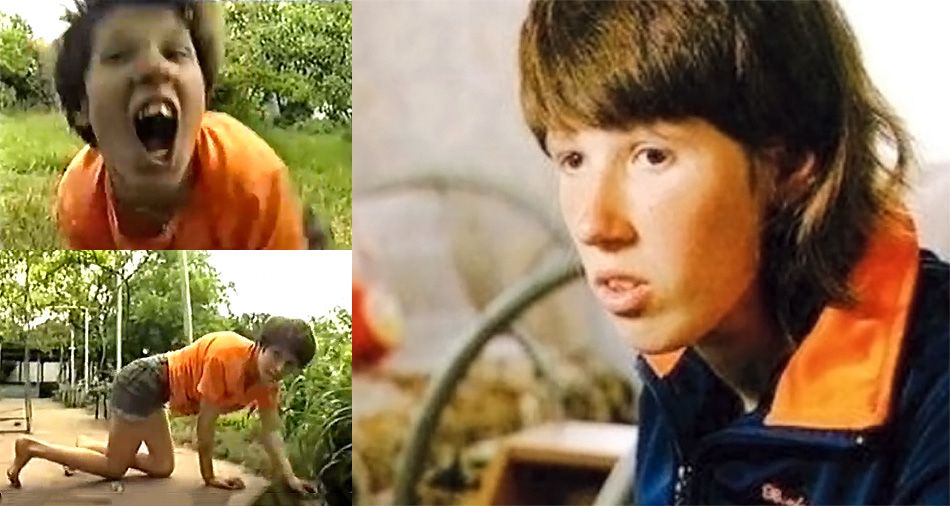 But children grow up, it's time to acquaint them with responsibility, and now you entrust the child with not just deeds, but responsible deeds: those for which you need to answer to other people or, simply, pay for mistakes.
But children grow up, it's time to acquaint them with responsibility, and now you entrust the child with not just deeds, but responsible deeds: those for which you need to answer to other people or, simply, pay for mistakes.
You instructed a child to place an expensive service on the table. Or put money in the bank. Or - to bring a little sister from the kindergarten ... Will she not break it? Will not lose? Will not forget?
When taking on a responsible task, the child already knows the price of a mistake, and treats the assignment responsibly: he will think everything over, remember, follow up and check, and he will definitely report back to you at the end.
When a child learns this too, you can be proud - you are already an adult. You have raised an adult, responsible person! Remember, it all started with quiet, neat outbuildings to a completely naughty child?
Of course, and after that no one will promise you that your children will become angels and will never disobey you. Everything is possible, our children do not always obey us. Sometimes it happens by accident, sometimes on purpose. How to react to it? Calmly. If you act wisely, you will solve this issue without difficulty.
Everything is possible, our children do not always obey us. Sometimes it happens by accident, sometimes on purpose. How to react to it? Calmly. If you act wisely, you will solve this issue without difficulty.
By the way, is there anything after the eighth step, after the formation of responsibility in the child? Your child is not only ready to fulfill your requests, he knows his duties, he is a completely independent and responsible person. And it's all? Is there anything else we want to give our child? Tell me, when and how will we set the task so that our children grow up as loving people?
Should children listen unquestioningly to their parents?
There can be no unambiguous answer to this question precisely because parents are different. There are parents - alcoholics, there are - smart and loving. If we talk about smart and loving parents, then our answer will be positive: yes, children should obey such parents implicitly. Why? For what? Because smart and loving parents love their children and will never demand from their children what will be harmful to children.


